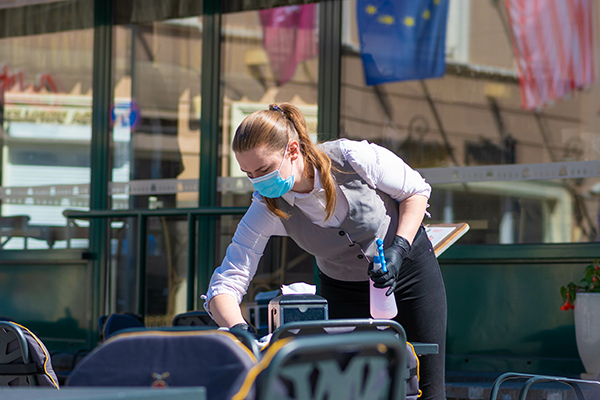Food Safety Doesn’t Just Happen!
No, food safety in retail foodservices doesn’t happen by accident—it is well planned and executed. It is controllable and foodborne illnesses are preventable! While food workers implement correct food handling and cleaning practices, the operators (managers, supervisors, or the person-in-charge) play a key role in making sure that safe food handling practices are known to all and actually followed. Today, we are introducing you to the term active managerial control and what it means in your operation. In the next blog, we will talk about how it is implemented in foodservice operations.
What is active managerial control? It is a proactive approach to food safety where procedures and systems are in place to identify potential food safety issues, and allow you to address them before they become a problem. For example, a supervisor reviews temperature logs and sees that one refrigerator has been higher than 41o F. A repairman is quickly called in to repair the refrigerator. This approach to managing food safety means that potential problems are identified, and procedures to prevent or quickly address are in place. Not only does this control against any threats to the safety of food, it also reduces the possibility of receiving a violation when the inspector visits. We believe that there should be NO surprises with a health inspection—a good manager will know the results before the environmental health specialist provides the report. With that being said, there should not be
violations because you are identifying problems and making changes to correct them!
Now think about that. If we wait for an inspection to identify problems, then a lot of time may pass with no mitigation of the problem. In many jurisdictions, health inspectors only visit once a year. Active managerial control provides for day-to-day oversight and increases the odds that problems are identified and corrected before anyone is impacted. A manager who practices active managerial control reinforces good food handling practices that mitigate food safety problems.
How can active managerial control impact foodborne illness? In a nutshell, foodborne illness can be reduced when managers implement active control. The Centers for Disease Control and Prevention identified five broad categories of risk factors for foodborne illness:
- Food from Unsafe Sources
- Inadequate Cooking
- Improper Holding Temperatures
- Contaminated Equipment
- Poor Personal Hygiene
How many of these five risk factors can we control in our kitchen? Well, if you said “all of them” you are correct! After all, we control how we buy food and how we handle it once it is delivered to our operation. Who is that “we”? Well, it is every employee in the operation. With so many fingers on food safety, how do we know when something is not done correctly? That is really what active managerial control is all about! We have to have systems and procedures in place to ensure that our standard operating procedures are being followed. Let’s say that we have a fairly new cook in our operation who used to work at a local restaurant and who has been cooking all his life. Because of his experience, he was given the recipe book, the menus, and the production forecast, and sent off to do his job. After a half a dozen complaints from customers that the chicken was not cooked enough, the manager begins to investigate. She looks at the temperature logs and finds he is not recording them. Come to find out, he doesn’t take temperatures because he has cooked so long he just “knows” when food is done. What went wrong? Is that an example where having a manager more involved would have prevented the situation? In the mid-1980’s Drucker wrote a book on management that talked about “managing by walking around.” Isn’t that what active managerial control really is? Supervision is key to making sure that employees know how to do their jobs, and that safe food handling actually occurs. We’ll talk more later in the month about steps to implementing active managerial control.
Risk Nothing!











